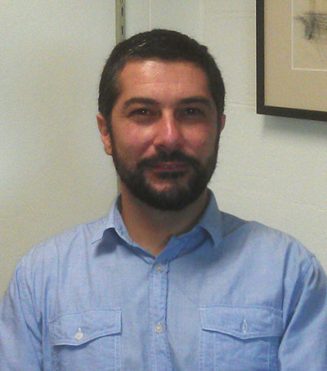 Macquarie’s newly transformed MQ2020 curriculum will empower our students for the jobs of tomorrow. Today we speak to Toby Fattore, the convenor of Macquarie’s new Master of Public and Social Policy program.
Macquarie’s newly transformed MQ2020 curriculum will empower our students for the jobs of tomorrow. Today we speak to Toby Fattore, the convenor of Macquarie’s new Master of Public and Social Policy program.
With its dual focus on policy analysis and applied social research, the degree empowers graduates to deliver effective policy solutions that improve the wellbeing of individuals and communities.
Dr Fattore’s own research focuses on children’s wellbeing, and how children’s perspectives can be incorporated into policy design.
What got you interested in policy around children’s wellbeing?
My own trajectory began when I worked for several government agencies involved with children and youth issues. I ran consultations, undertook research with children and young people directly – on issues like children’s work and wellbeing – and worked with a team that monitored the population of child fatalities across NSW.
These roles provided me with some important insights: that qualitative and quantitative evidence can be powerful tools to persuade decision-makers; but that evidence per se is not enough. To effect policy change, good research needs to be used strategically – you need to have an understanding of policy processes, power and politics to translate evidence into practice.
In my research about children’s wellbeing, we are also moving from seeing children as objects of analysis, to children as rights’ bearers who can provide important insights into their own lives, if asked.
What else is changing for policy-makers?
The shift towards big data and digitalisation as a policy tool leads to many ethical issues. These tools can be used positively or negatively. For example, we have the data to predict families where children are at a high risk of abuse or neglect. Data doesn’t tell you the answer as to what the interventions should be. It doesn’t take into account different contexts, so you need the proper frames to understand how to make data meaningful and apply it in ethical ways.
What does your current research look at?
In light of the findings of the Royal Commission into Institutional Responses to Child Sexual Abuse, my colleagues and I are researching child welfare organisations to understand how attitudes towards children combine with organisational practices within child welfare institutions, to create conditions in which child abuse occurred.
Our view is that to bring about change in individual behaviour requires changing institutional practices – with our ultimate aim being to inform policies that prevent institutional child abuse.
Is there a policy conundrum that keeps you up at night?
In the space of institutional abuse, it’s the question about the relative responsibility of the institution versus the individuals who committed the abuse – and what the relationship between the two is.
I also think about how we might we shift the policy debate around what serves children in terms of education, and the recent school climate strikes really highlighted this. From an educational policy-maker’s perspective, there is a narrow view of education happening only at school, whereas being involved in social action also has educational benefits.
Do the recent climate strikes reveal we are starting to take young people’s perspectives more seriously?
The message that the students were sending was that they are being dismissed because they are children, so adults should “act like adults” and take responsibility for climate action. It’s an interesting generational logic.
The response is also interesting: a generation previously dismissed as politically disinterested are demonstrating political action, and are now being told they should be at school instead.
Interested in studying the Master of Public and Social Policy, or another Macquarie postgraduate program? Applications for the professional staff postgraduate scholarship scheme close this Thursday 3 October.


 Back to homepage
Back to homepage